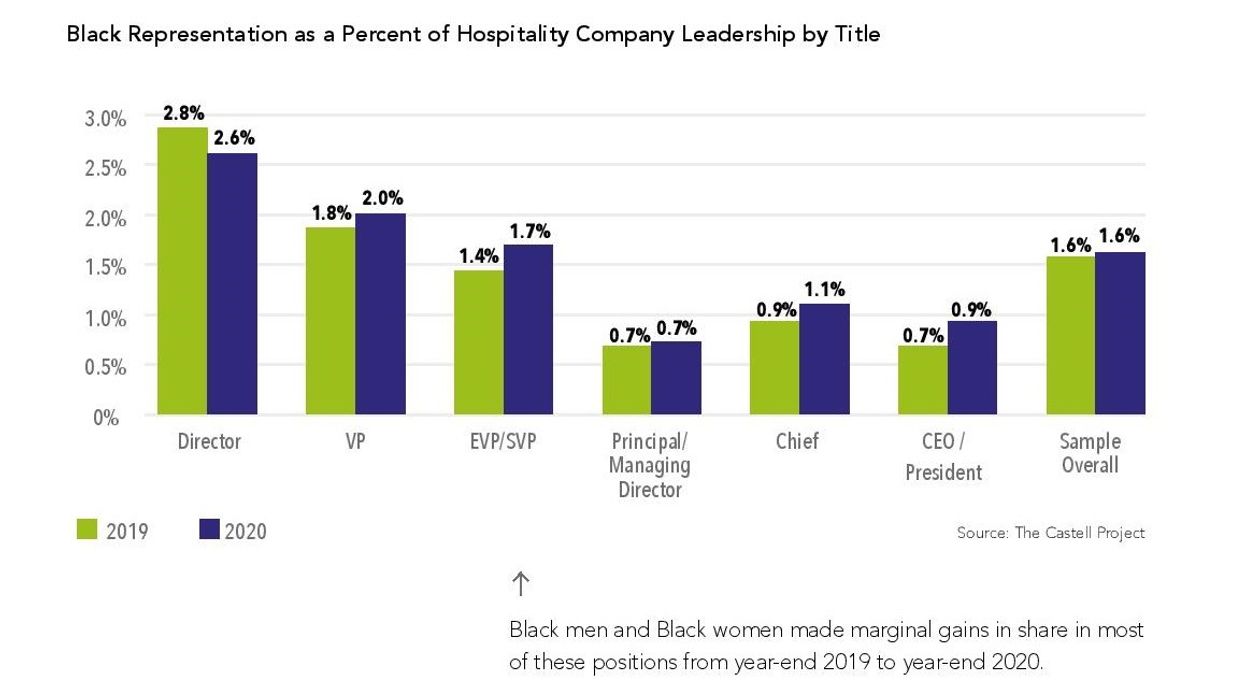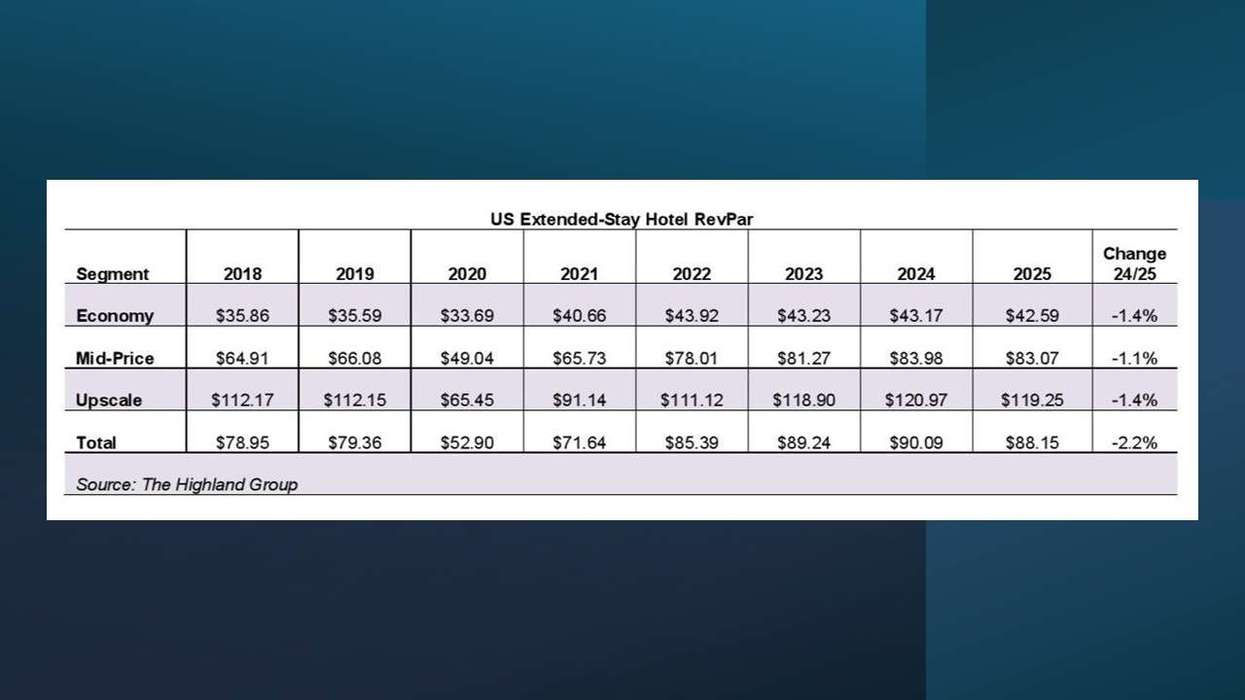BLACK WORKERS IN the hospitality industry saw little advancement in representation on all levels, according to a report from the non-profit Castell Project. Fewer Black people were employed by the industry over the past year and they were under-represented in leadership positions.
Black employees made up 17.5 percent of employees in the U.S. Bureau of Labor Statistics’ “traveler accommodation” category in 2020, down from 18.8 percent in 2019, according to the “Black Representation in Hospitality Industry Leadership 2021” report. Overall average employment in the category fell 35 percent, but the hospitality industry, and U.S. businesses in general, let a higher proportion of black employees go during the year.
Also, one in 5.7 industry employees is Black, but one of 49 vice presidents and one of 58 executive and senior vice presidents shown on U.S. and Canadian company websites reviewed for the study. The dataset includes 7,243 people in 801 companies for 2020.
“Hospitality is even more dependent on Black employees than other industries in North America so equity and inclusion will be vitally important to the industry’s ability to attract employees post COVID,” said Peggy Berg, founder and chair of Castell Project, Inc. “This is a time of remarkable opportunity, as virtually every company in the hospitality industry restructures at once. As McKinsey & Company reports, ‘diverse companies outperform industry peers over time, and the penalties are getting steeper for those lacking diversity.’ This is the hospitality industry’s rare chance to open opportunity to diverse employees and to rebuild equitably.”
Highlights of the report include:
- In 2020, 11 percent of the 801 hotel company websites reviewed for this study showed Black executives (director through CEO) compared to 16 percent of 630 company websites in 2019.
- Black executives represented 1.6 percent of hospitality industry executives at the director through CEO level on company websites in 2020. This is 10.9 times lower than their 17.5 percent share of hospitality industry employment. This indicates that advancement is not equitable for Black employees in the hospitality industry, according to Castell Project.
- Consulting firm Korn Ferry reports that Black people hold 5 percent of executive positions across all industries and four percent at S&P 500 companies. This compares to the hospitality industry at 1.6 percent.
- Intersectionality, the combined impact of race and gender, is more pronounced for Black women at each higher level.
“This is a pivotal moment,” Berg said. “Because of the scale of business disruption during the pandemic, how we bring people back to work, and who we bring back, will define the industry for years to come. This is a pivotal moment as we shape the industry for a diverse future marketplace.”
In April, Castell Project released its fourth Women in Hospitality Industry Leadership report that found women also made little progress over the past year, in part due to the COVID-19 pandemic.






